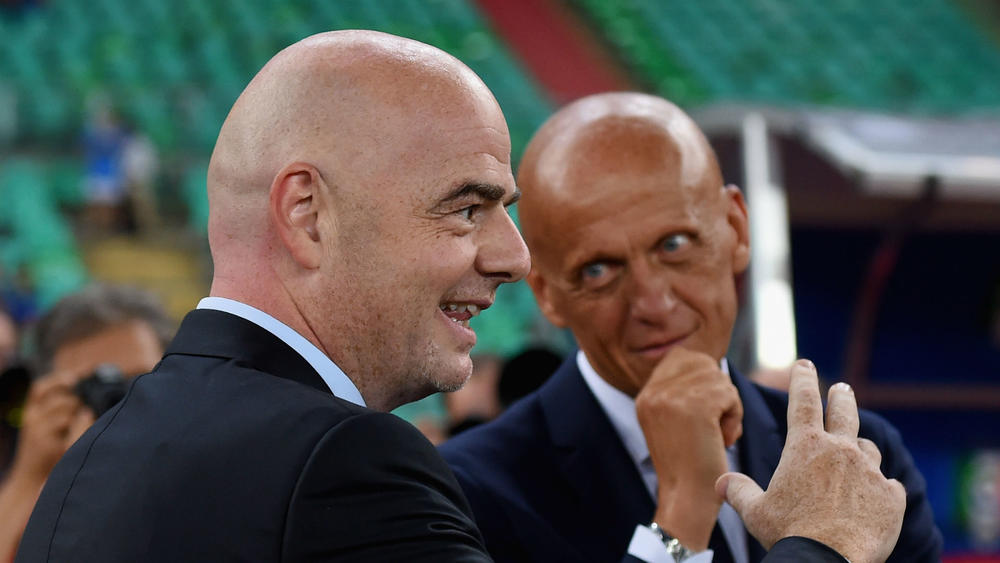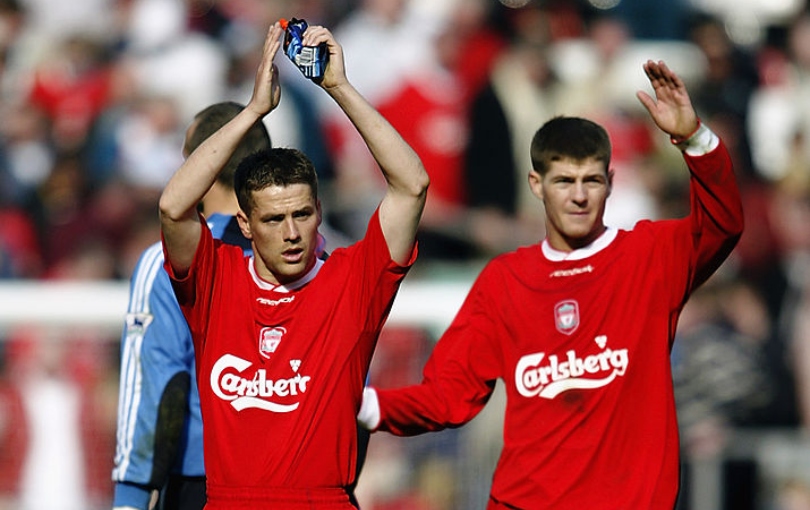Infantino hails VAR as 'the future of football'
Though Gianni Infantino and Pierluigi Collina feel there is work to do, they have hailed VAR as a big success at the Confederations Cup.

FIFA president Gianni Infantino has given the clearest indication to date that video assistant referees (VAR) will be used at the World Cup next year.
The technology has been trialled at the Confederations Cup in Russia over the past two weeks, with Chile facing Germany in Sunday's final.
Although FIFA have pointed to six "game-changing" decisions being overturned successfully by VAR, fans and pundits have lacked a similar sense of satisfaction, with the length of time taken to make decisions and the situations where or where not VAR might apply causing confusion.
Infantino acknowledged work still needs to be done but offered a resounding endorsement of VAR, declaring it to be "the future of football".
"Nothing is standing in the way of using VAR as far as I am concerned," he said at the Confederations Cup's closing news conference at St Petersburg's Krestovsky Stadium.
"The one thing we have to improve is communication and learning to deal with the VAR, the time it takes, the seconds or minutes.
"But after that, if the correct decision is taken, it can only be beneficial. There will be some leagues - the Italians, the Germans - who will test VAR in their own competitions and this will be useful.
Get FourFourTwo Newsletter
The best features, fun and footballing quizzes, straight to your inbox every week.
"VAR is the future of football."
Infantino: "From my side the video assistant refereeing has been a great success." Without VAR, would have been "less fair"July 1, 2017
Pierluigi Collina, the former Italian official who is head of the FIFA referees' committee, said VAR taking pressure off the man in the middle was a major plus.
"One of the referees appointed to the Confederations Cup text me after one of the matches and he said he was enjoying the matches because he felt less pressure," Collina said.
"This is what the referee thinks, going to the pitch knowing that if they do not have enough information to make the correct decision or the decision does not rely on their skill or quality, but line of vision – when we simply cannot blame the referee – it is okay.
"So far, with the VAR system implemented, we have refereed only 74 matches. That is not a big number.
"We see the very positive result we have but we are also aware we can improve. It would be very surprising after so few matches if everything was perfect.
"We can train the referees but to train someone without the pressure of the match is different. What is important is the match itself."
Collina added: "We are happy so far. We want to avoid those types of mistakes that are still remembered by everybody for affecting the final result of a match or the final result of a competition."
